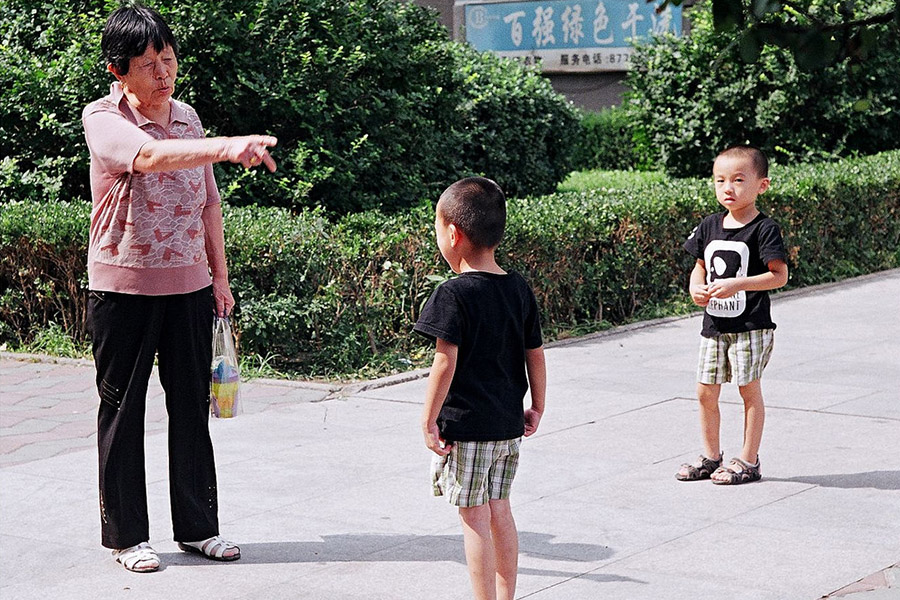
 Many of us have read Amy Chua’s provocative Wall Street Journal article “Why Chinese Mothers Are Superior.” Chua was the original Tiger Mom — fearlessly describing what was a hidden reality for many students. On this campus, Aggies come from a variety of backgrounds: Some had helicopter households, and others — for want of a better word — free-range ones. Yet, despite the diversity in upbringings, most Aggies are very ambitious and successful in their academic pursuits. So does the way we’re raised factor in how successful we are and how well we run the rat race?
Many of us have read Amy Chua’s provocative Wall Street Journal article “Why Chinese Mothers Are Superior.” Chua was the original Tiger Mom — fearlessly describing what was a hidden reality for many students. On this campus, Aggies come from a variety of backgrounds: Some had helicopter households, and others — for want of a better word — free-range ones. Yet, despite the diversity in upbringings, most Aggies are very ambitious and successful in their academic pursuits. So does the way we’re raised factor in how successful we are and how well we run the rat race?
Growing up a stone’s throw away from the Apple Campus in Cupertino, I was in what is the heart of tiger parent territory. And despite the prolific studies since 2011 on how helicopter parenting can cause more strife in families than good for children, nothing really changed post-Chua’s cathartic article. Some of my friends came from households that mirrored Chua’s — no playdates, sleepovers, computer games. And at that stage, it made a difference. When children are given clear and rigid expectations, they don’t have much of a choice — they meet them or face the consequences their parents lay out.
But jading children so early, making them feel there is only one option and a singular path to success is undoubtedly detrimental. I grew up in a household where my parents didn’t helicopter — more of “satellite-d.” Meanwhile, the children who had free-range parents did just as well; their drive was completely internal, and their perspective was remarkably mature. This isn’t an anomaly: Studies continue to show that “troubled teens” come as much from authoritarian households as permissive ones.
“When children are caught in between their parents’ old way of parenting and being and culture and the new in the U.S., then that can be very, very tough […] in a variety of ways,” said Desiree Baolin Qin, a professor at Michigan State University who has done extensive research on tiger parenting. And she’s right. It’s mostly the immigrant households that helicopter — the fears parents have for the success of their children in a new land with a system so different from what is familiar and indubitably scary are well founded. When I graduated from high school, 90 percent of my graduating class were students of color, 85 percent of Asian descent. Most of us were immigrants and first-generation Americans.
What bothers me is that the insecurities of our role models shouldn’t be forced upon us. As students, we are encouraged to introspect and address personal issues — for many high schools, with at least one counselor or therapist. Yet once students leave for home at the end of the school day, they must carry the burden of their parent’s unfamiliarity. And then there are the parents who are just competitive, pushing their dreams on their children’s tender shoulders. Not only does this create students who are cold and hard to the world, but they also get an unbalanced idea of what success means and how to achieve it.
The approach to education and overall attitude and demeanor of my peers was the largest change upon starting college. And while many of us who grew up where cutthroat competition was the norm breathed a little easier, some of my peers found the transition harder. Most students don’t have their parents by their side at this stage in their college career, so it isn’t tiger parents who push their children — it’s grit and self-drive. Whether we hit the ground running or not, by graduation, most of us find our groove. The advantages of growing up in a high-stakes household diminish as the playing field evens ever so slightly.
My plea to students is to maintain perspective — what was the norm in youth is no longer. And the definition of success and failure is fluid. Only for so long is the influence of parents significant for the habits of an Aggie. It’s up to us to choose what drives us and gives us the push to become the best versions of ourselves.
Written by: Sam Sridharan — smsridharan@ucdavis.edu
Disclaimer: The views and opinions expressed by individual columnists belong to the columnists alone and do not necessarily indicate the views and opinions held by The California Aggie.



